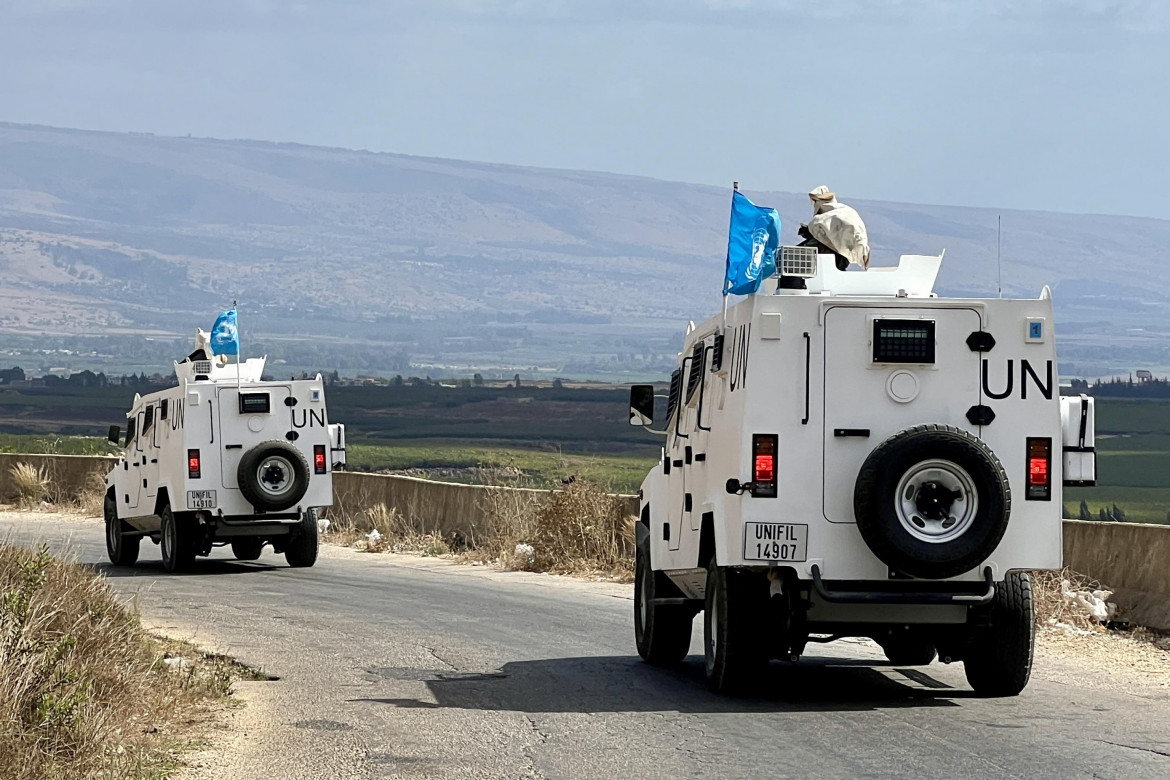Analysis
UNIFIL is a peacekeeping mission powerless to ensure peace
Tajani has said that Israel should “limit civilian casualties as much as possible” (kill fewer people if possible, please) and, “above all, guarantee the safety of the UNIFIL soldiers.” These are not easy times for the UN missions around the world (nor that there have really been any).

“Any crossing into Lebanon is in violation of Lebanese sovereignty and territorial integrity, and a violation of Resolution 1701,” said UNIFIL in a press statement issued on Tuesday. The UN mission had a straightforward assessment, calling the notification received from the Israeli military about its intention to proceed with “limited ground incursions” across the border a “dangerous development.”
The 10,000 or so troops that are part of the U.N. peacekeeping mission established in 1978 and reorganized in the aftermath of the 2006 war on the so-called Blue Line will “remain in position.” It’s not a comfortable place to be in, and this is certainly not the buffer role that the mission was designed for. It is a posture of defeat for a peacekeeping force that now has to operate under conditions in which it has little force to exert and there is no more peace to speak of.
Concern has been growing from many quarters about the security of these troops, and Foreign Minister Tajani has been echoing it, sparing a thought for the 1,000 or so soldiers of the Sassari Brigade holed up in the bunker of the Millevoi base in Shama, along the coastal strip and east of Tyre, which for now doesn’t seem to have been targeted by the Israeli operations. There is bipartisan pressure to bring them back to Italy immediately, and even Defense Minister Crosetto is beginning to question whether it still makes sense for them to stay.
Tajani has said that Israel should “limit civilian casualties as much as possible” (kill fewer people if possible, please) and, “above all, guarantee the safety of the UNIFIL soldiers.” They are not a target, he assured, as if the alternative was actually a possibility. But we’re seeing Netanyahu brand the UN as a den of dangerous anti-Semites and treat humanitarian agencies such as UNRWA as terrorist hubs, so who even knows anymore.
These are not easy times for the UN missions around the world (nor that there have really been any). Minusma, which was supposed to stabilize Mali, has itself been destabilized and is being dismantled. Minurso, in Western Sahara, was created in 1991 to oversee a self-determination referendum that Morocco has no intention of ever holding. Monusco, deployed in Kivu in the humanitarian quagmire of the Democratic Republic of Congo, has become part of the problem instead of the solution. In Darfur, where Unamid guarded a sham peace until 2020, the specter of ethnic cleansing is making a comeback.
But the UN force deployed on the Israel-Lebanon border is laboring under a truly dramatic paradox: as the first task of its mission that started in 2006, the contingent was supposed to monitor the stop to hostilities, but now reason itself has abandoned the scene entirely.
The UNIFIL statement in which they “strongly urge the parties to recommit to Security Council resolutions and [Resolution] 1701” and stress that “civilians must be protected, civilian infrastructure must not be targeted and International law must be respected” gives, when faced with the facts, the impression of a broken record. There is no red line that hasn’t been crossed in the past year, and one can hardly expect the Blue Line to fare any better, regardless of UNIFIL’s position on the matter.
Originally published at https://ilmanifesto.it/unifil-la-missione-che-non-trova-pace on 2024-10-02
